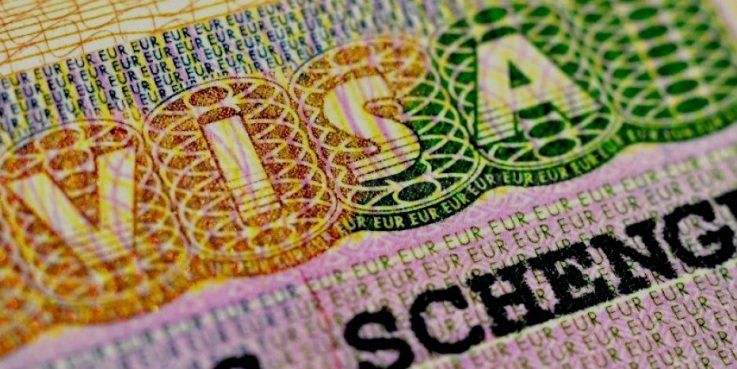
Opinion
Solidarity Tax Fails To Deliver, Creates Political & Economic Risks
At the end of 2022, the Spanish PSOE-led government introduced a new Solidarity Tax on assets over €3 million. It was meant to be a way to reconcile different wealth tax policies across the different Autonomous Communities, as well as increase revenues for the government.

This was widely seen as a response to the government of Andalusia and, in Madrid, eliminating the previous Wealth Tax. The provisions of the law, which I explain below, suggest that it intends to force the Madrid and Andalusian governments to restore the Wealth Tax. This will especially affect non-residents with Spanish assets.
What is a Wealth Tax?
A wealth tax differs from an income tax, which taxes income gained in a particular period. It’s also different from a sales tax, which imposes a tax on goods at the time of purchase.
Instead, a wealth tax is levied based on the total value of assets owned by a person each year, and it is levied every year thereafter. In the case of the so-called Solidarity Tax, if you own a couple of houses and some stocks, adding up to more than €3 million Euros, you will pay 1.7% tax on your total assets every year.
With the Solidarity Tax, that percentage rises as the value of your assets rises. If you have more than €10.5 million in assets, you will have to pay 3.5% in tax every single year just for having those assets.
Setting aside the fairness of taxing someone over and over for a purchase or investment that they made in the past – and already paid tax on – the question arises whether it is effective.
Of course, governments need to levy taxes. We need roads, hospitals and schools, as well as other infrastructure and services. And, of course, taxes must be both fair and seen to be fair. But there’s no point in having tax laws that don’t do what we need them to do. Or, worse, actually reduce the revenue needed.
Tax Falls Short
At the time of its public promotion and then implementation, the PSOE-led government claimed that the tax would raise approximately €1,500 million each year from 23,000 high-net-worth individuals. The first year of its implementation was for fiscal year 2022, and the numbers are in as of late September.
According to the Ministry of Finance, the Solidarity Tax raised €623 million from just over 12,000 people. In other words, less than half of the projected total. Of that amount, 89% or €555 million, came primarily from the Autonomous Community of Madrid. Next in line was Andalusia, at a mere €29.7 million. Of course, it is possible that those numbers will climb closer to the projected amount in the second year of its implementation. But I doubt it.
For non-residents who own property and other assets inside of Spain, they can divest themselves of those. Only Spanish assets are counted for them. That might not be overly complicated if their assets are in the form of intangibles, like stocks. However, investment properties or vacation properties are more complex because they are less liquid. For residents and citizens, it is still more challenging because the government will consider worldwide assets when calculating the total. And that brings us to the nub of the problem.
On September 21 of last year, as I noted above, the government of Andalusia eliminated the wealth tax. At the time I wrote that it was a significant step forward in building economic momentum in Andalusia and eliminating the investment-killing tax. The government of Juanma Moreno did this because they looked at the numbers, and they just didn’t make sense. The tax, rather than bringing in a net gain in revenue, likely caused a loss of €18 million because of people fleeing the tax.
What’s more, the tax, even as intended, brought in so little that eliminating it would have no impact on government revenues. And finally, they estimated that eliminating the tax would allow the region to attract at least 7,000 new high-net-worth individuals. Those people might not be paying the wealth tax but would be paying income, sales, and property taxes. The total amount gained, not including the economic multiplier effects of their consumption spending, would dwarf the small amount that the wealth tax could levy.
Foreign Investor and Regional Government Implications
On top of all these factors, taxing the Spanish assets of non-residents is a direct attack on foreign investment in the country. It is telling people who might be interested in investing in Spain that they will be punished if they do so. What might be worse is that the changes to the tax law seem to be a vindictive attempt to force the governments of Andalusia and Madrid to submit to the tax agenda of the PSOE-led federal government. Let me explain.
Under the old Wealth Tax, non-resident asset holders were permitted a €700,000 exemption, the same as Spanish tax residents. There is also a €300,000 exemption for residents who can apply it towards their primary residence. Obviously, non-residents, by definition, don’t have a primary residence in Spain.
The Solidarity Tax eliminates that €700,000 exemption for non-residents. This makes it objectively worse for foreigners to invest in Andalusia or Madrid from a taxation standpoint. It may also be illegal under EU rules, but that’s another story.
If those regional governments want to end this discriminatory treatment, they must restore the Wealth Tax. In those regions where the Wealth Tax remains at the same level as the Solidarity Tax, the Wealth Tax and its rules supersede the Solidarity Tax. Thus, foreign property holders in Valencia are permitted the €700,000 exemption.
Finally, the government also changed the Wealth Tax law for non-resident asset holders in Spain. In the past, non-residents could avoid the Wealth Tax by setting up a company that owned their real estate. This “indirectly held” real estate wasn’t subject to the Wealth Tax. That loophole has now been closed.
If you own significant assets in Spain, you should definitely speak with a tax lawyer or gestor to find out if you’re vulnerable to the new law.
The Madrid region’s government has already contested the legality of the tax, which seems likely to be unconstitutional on multiple counts. If that is the case, it will be struck down. However, it is possible that the government knows this and hopes it has long enough to force Madrid and Andalusia to reverse the Wealth Tax in those regions.
Who knows? But does it make sense to take economic risks and pick political fights when the tax has so far been a failure by its own measures?
By Adam Neale | Opinion | October 3rd, 2023
Related Posts


